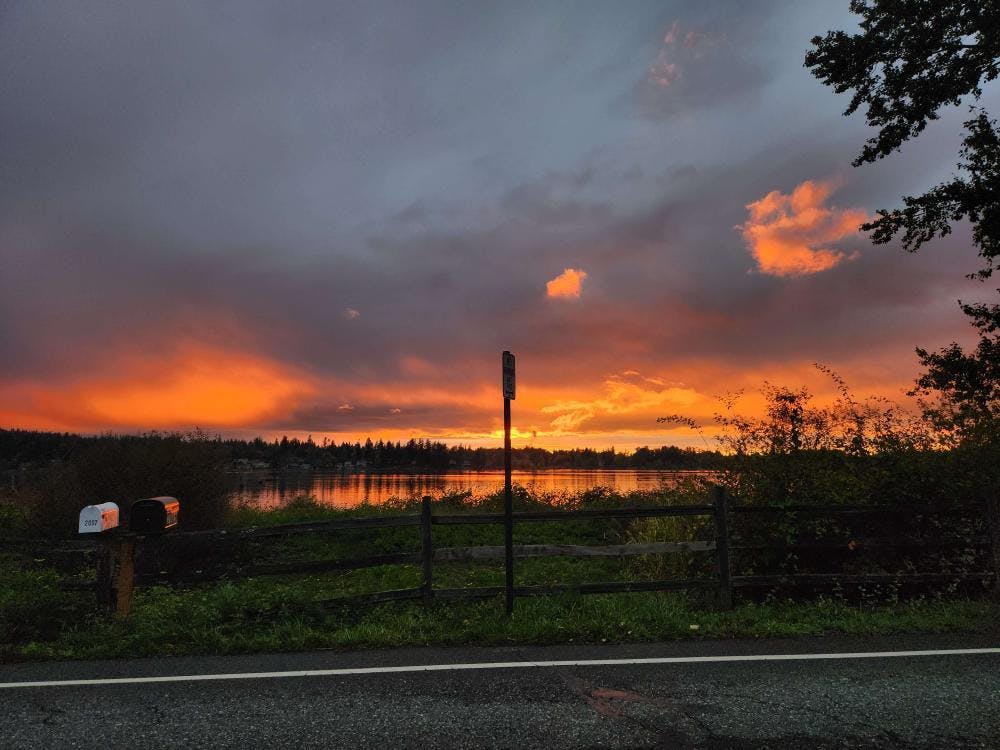Every day, when Bellingham residents brush their teeth and fill up their water bottles, they use water from Lake Whatcom.
The lake’s health is imperative to providing good and safe drinking water. Mayoral candidates Seth Fleetwood and Kim Lund want to keep Lake Whatcom’s water clean.
Fleetwood said his current approach is to protect as much of the natural resource for the effort and funds they put in. His main focus is to protect Lake Whatcom from pollutants in runoff on land acquisition and stormwater management.
The Stormwater Management Program stops phosphorus, bacteria, fertilizer and other pollutants from being carried by runoff into the lake. The city has built water collection systems to manage pollutants.
Fleetwood and Lund plan to continue the Land Acquisition Program, where the city of Bellingham buys land along the watershed. The land is restored to a natural state, primarily through tree planting.
“Fundamentally, we just let it be,” Fleetwood said. “The primary object is to let the trees grow.”
Watershed fees in utility bills fund the Land Acquisition Program. Fleetwood said he plans to press his counterparts at the county level to create a dedicated fund to acquire land at a faster pace.
"I know that this is something that they recognize could be enhanced,” said Fleetwood. “I'll use my relationships to press them on that.”
Lund said the Land Acquisition Program is key to the health of Lake Whatcom. She plans to strengthen incentives for watershed homeowners to ensure Bellingham meets the Environmental Protection Agency's limit of 0.1 milligrams per liter.
“We are falling far behind the goals that we set for ourselves as a community," Lund said.
Lund wants to start consumption goals for residents to ensure water is used at sustainable rates for the city. This system would help set equitable water rates based on consumption.
While stormwater management has limited phosphorus, there are concerns about the city's lack of climate projections in their plans, said Alexander Harris, the land and water policy manager for RE Sources, a non-profit organization focused on protecting the environment.
“I think there's a lot of agreement that the city and the county have made a lot of progress,” Harris said. “But those entities have not really factored in climate projections into the future.”
Climate projections include more rain in the colder months, leading to more erosion bringing phosphorus into the lake, said Harris. Phosphorus can cause excessive algae growth that decreases water quality.
The trees replanted along the watershed can lessen these impacts. Some of the recently planted trees along the watershed are unnaturally dense, he said.
“Make them more biologically diverse and also make them more structurally complex,” Harris said.
Biologically diverse forests are more resilient, he said. They are better able to protect the watershed it surrounds from pollutants.
The future of Lake Whatcom matters because Bellingham depends on it, said Marcus Moyle, a second-year student at Western Washington University who has studied the lake in his biology class.
Future City Council members must meet the challenges of ensuring the protection of Lake Whatcom, Moyle said. “I mean, it’s our drinking water,” he said.
“We need leadership, we need vision and we need a commitment to science-based strategies that actually work,” Harris said.
Jenna Millikan (she/her) is a city news reporter for The Front this quarter. She is a third-year student majoring in journalism with a minor in political science. When not reporting, she enjoys cheesy movies, reading and drinking too much coffee.
You can reach her @jennamillikan.thefront@gmail.com






